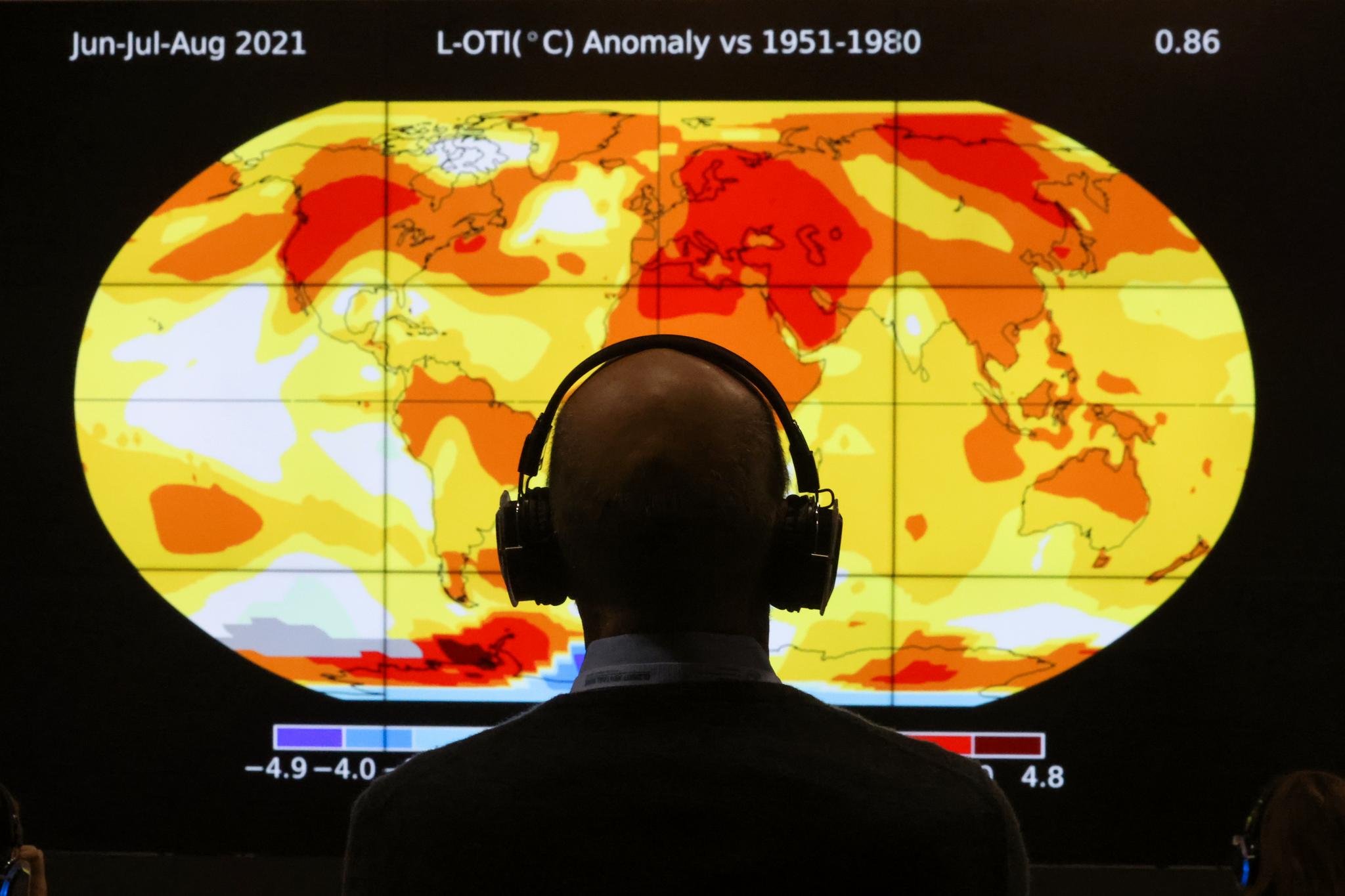
Understanding how the government addresses climate change is essential in order to combat it. The United States is a world leader, and its actions can accelerate global action. This approach can be difficult to implement at home.
The federal government has implemented several policies in order to curb emissions from all sectors of our economy to combat climate changing. These include the Clean Air Act which requires the Environmental Protection Agency (EPA) to partner with states in reducing greenhouse gas emissions. Other laws require Department of Energy to set energy efficiency standards and work with private companies to develop clean technology.

Additionally, the Biden administration has adopted a "whole-of-government" approach to combating climate change, which includes a partnership with state and local governments. It is also working on reducing emissions from all major industries, including transport and electricity generation.
Several cities and towns around the country are also taking action. Some have already taken action to reduce their carbon footprint. Others are now focusing on adaptation, such as the development of heat-resistant streets and improved water storage. Communities have the ability to plan for higher temperatures and help prevent disasters such floods.
An array of countries around globe are working to combat climate changes. South Korea, Japan and the European Union have all set new goals to reduce carbon emissions. While most countries are determined to achieve net-zero emission by 2050, some countries are increasing their ambition.
A large portion of the world's population is extremely vulnerable to the effects of climate change. People living on the Pacific Islands face rising temperatures and rising sea levels. Indigenous Peoples stand at the forefront of the fight against fossil fuel industries. Many of these communities also play a key role in the fight against deforestation. This is a crucial time to address climate change, since it is affecting all parts of the world.

Climate change poses a threat to both public health and the environment. It can also pose a threat for the economy. It can also lead to disputes between countries over water supplies. The United States must act now if it wants to prevent global warming exceeding two degrees Celsius.
President Joe Biden has led the effort to reestablish the United States' leadership in combating climate change. His executive order, issued earlier this year, called for the administration to reduce its domestic greenhouse gas emissions by 50-52% from 2005 levels by 2030. He also encouraged Congress's action to address the climate crisis. Since taking office, President Biden has appointed former governors to his cabinet and enlisted the entire government in his effort.
Despite the difficulties of implementing policies in the home, the government continues to make progress. For instance, the Biden administration has made major investments in clean energy and is committed to achieving half of the country's greenhouse gas reduction goal by the end of the decade. At the same time, the administration has embraced a partnership with the private sector and state and local governments.
FAQ
How does climate change politics impact global efforts?
Climate change is a hotly debated issue, which has led to a lot division among countries, governments, as well as individuals. Politicians of many actors influence the implementation of actions to address climate change. It has become difficult to find consensus on global efforts to tackle this pressing environmental crisis.
The overwhelming majority of scientists agree with the fact that human-generated global warming is real. It is urgent for action to address it. Politics surrounding these issues can often hinder global cooperation, which is required to make effective progress in implementing sustainability energy practices and upholding regulations protecting natural environments, researching viable technological options, and other climate-change interventions.
Many governments around the globe want to protect business interests and enforce policies that restrict business activities. This often clashes with regulations that experts recommend for effectively addressing climate change. Without strong commitments of all participating countries, and international action on a large scale, it becomes difficult for any state or group or states to effectively address climate-change legislation.
It is difficult to reach a consensus about how to address climate change because of differences in power dynamics between countries. Countries with more economic power frequently appoint their own representatives for international negotiations over the environment. This can lead lopsided discussions between countries' perceived interests and those of all other parties. A number of potential side effects that could be caused by radical changes like geoengineering were also discussed at national and international levels.
A grassroots movement has also struggled against powerful opposition, including corporate ownerships as well-funded lobbyists trying to keep their industries politically favorable. This is especially true when it comes funding research into alternative energy production and enforcing mandates for renewable energy technology. Individual governments need to be clear about the potential rewards and outcomes of making valid progress on the issue. They cannot seek short-term spectacles or gains to gain public support.
To mitigate the current environmental crisis, it will be crucial that resources are properly distributed and political divisions between countries are not overlooked.
What is the state of international efforts for climate change mitigation?
The current state of international efforts to address climate change is one of unprecedented unity and momentum. Countries all around the globe are increasingly joining forces to find solutions to climate change.
The Paris Agreement is an international framework that encourages collective action. It also provides a framework to allow individual countries and regions to set voluntary targets to reduce emissions. In addition, the UN Framework Convention on Climate Change provides political guidance as well as piloting new initiatives such carbon market mechanisms.
Other regions are seeing progress. The European Green Deal is a comprehensive legislation package that seeks to create a European economy with sustainability as its core. Countries on the African continent also have committed to The African Renewable Energy Initiative, which aims increase Africa's participation in global renewable energy production.
Apart from policy changes, action is visible across sectors and industry. Cities are actively transitioning to sustainable public transport systems. Society at large is adopting more sustainable lifestyles. Companies have been innovating technologies to lower emissions. Investors are switching away from fossil fuels to invest in renewables.
The OECD committee has adopted common standards to report national actions on climate change by rich countries. This is known as the 2021 Guidelines.
These efforts all signify an unprecedented importance placed on climate action. If we are to meet the Climate goals as set out by science and enshrined into international law, governments, civil society, and private sector stakeholders must all continue to build on this momentum.
What are the impacts of climate change on society and the environment?
Climate change has many impacts on society and the environment. Climate change is causing a variety of environmental problems, including rising temperatures, extreme weather, sea level rise, and reduced air quality. These changes could have serious consequences for humans, causing instability in communities, intensifying poverty, insect-borne illnesses, changing human migration patterns, and destroying essential habitats.
Already, climate change is having an enormous impact on the environment as well as societies around the globe. As global temperatures continue to rise, this is likely to worsen in the near future.
Ocean levels rising due to melting ice caps is one of the most pervasive effects of climate change worldwide. This can lead to shoreline erosion and increased flood risk for coastal communities. Saltwater intrusion is also a problem, and can negatively impact freshwater supplies along the coasts of many countries.
Climate change is causing extreme weather events like heatwaves, droughts and other severe weather to occur in many countries. These events cause mass destruction to homes and businesses, leading to displacement or relocation of communities or wiping out whole towns in some cases. Intense storms increase the risk of flooding and landslides. This can further damage infrastructure like roads, railways, and bridges.
Wildfires caused by climate change also increasingly occur more frequently than they did before with devastating results both for habitats and people living nearby who may find their lives at risk due to poor air quality when these fires spread smoke across affected areas.
These drastic changes often lead to displacement or refugee crises. People move out of their homes involuntarily or voluntarily when their communities become unsafe or uninhabitable due to the altered climate.
People with respiratory diseases such as asthma are particularly vulnerable to dust storms from increased aridity. Pest infestations will increase due to higher temperatures - a phenomenon called the 'greenhouse bug'. This can further impact global food insecurity as fewer crops are available with poorer nutritional qualities, potentially creating additional hardships for marginalized populations that otherwise would be barely able to make ends meet.
Statistics
- features Earth's average surface temperature in 2022 tied with 2015 as the fifth warmest on record, according to an analysis by NASA. (climate.nasa.gov)
- features Earth's average surface temperature in 2022 tied with 2015 as the fifth warmest on record, according to an analysis by NASA. (climate.nasa.gov)
- According to the 2014 report on Climate Change Impacts, Adaptation, and Vulnerability (page 8) from the United Nations Intergovernmental Panel on Climate Change, governments at various levels are also getting better at adaptation. (climate.nasa.gov)
- Indigenous peoples and local communities receive less than 1% of all climate funding despite scoring wins for people and nature Africa's broken food markets must be fixed to tackle hunger (climatechangenews.com)
- The 100 least-emitting countries generate 3 per cent of total emissions. (un.org)
External Links
How To
How to make your home more efficient and fight climate change
It is possible to make your home more energy efficient, reduce your carbon footprint and save money on your utility bills.
Make sure your home is well insulated and sealed. Check for drafts, ensure doors and windows are properly installed, and then seal any gaps or cracks with caulking.
Insulate walls, ceilings and floors for maximum energy efficiency. Inspect the attic for potential air leaks.
Lighting is responsible for 18% of household electricity use. LED bulbs are up to 80% more efficient than traditional incandescent light bulbs. Additionally, motion sensors and timers can help you save money by automatically turning off lights when necessary.
Replacing an old boiler or furnace can dramatically reduce energy bills as newer models are much more efficient. Consider getting a programmable thermostat that allows you to set temperatures based on when people are home or away from the house.
You can replace all your windows with double-glazed windows that offer better insulation and heat resistance. Low-flow showerheads can be purchased to reduce water consumption, but still maintain sufficient pressure.
ENERGY STAR rated appliances are more efficient than non-certified models and can use as much as 50% less power. Do not forget to unplug electronic devices, such TV boxes or phone chargers, when not in usage. This can help you save considerable energy.
Overall, these few steps can significantly lower your impact on climate change, decrease monthly electricity costs, making living at home much more efficient!